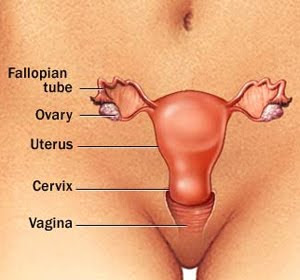Home Care - Prevent and Treat Vaginal Discharge
Vaginal discharge is a term given to biological fluids contained within or expelled from the vagina.
Normal vaginal discharge has several purposes: cleaning and moistening the vagina, and helping to prevent and fight infections. Although it's normal for the color, texture, and amount of vaginal fluids to vary throughout a girl's menstrual cycle, some changes in discharge may indicate a problem.
Vaginal discharge is made up of cervical mucous, discharge from vaginal walls, and sweat from the vulva. Some women have large numbers of mucous glands on the cervix, which increases the amount of vaginal discharge. Overweight women, especially if they wear stretch pants, will have a heavier vaginal discharge because of the increase in sweat.
The following situations can increase the amount of normal vaginal discharge:
- Emotional stress
- Ovulation (the production and release of an egg from your ovary in the middle of your menstrual cycle)
- Pregnancy
- Sexual excitement
To help prevent and treat vaginal discharge:
- Keep your genital area clean and dry.
- Do not douche. While many women feel cleaner if they douche after menstruation or intercourse, it may actually worsen vaginal discharge because it removes healthy bacteria lining the vagina that are there to protect you from infection. It can also lead to infection in the uterus and fallopian tubes, and is never recommended.
- Use an over-the-counter yeast infection treatment cream or vaginal suppository, if you know that you have a yeast infection.
- Eat yogurt with live cultures or take Lactobacillus acidophilus tablets when you are on antibiotics to avoid a yeast infection.
- Use condoms to avoid catching or spreading STIs.
- Avoid using feminine hygiene sprays, fragrances, or powders in the genital area.
- Avoid wearing extremely tight-fitting pants or shorts, which may cause irritation.
- Wear cotton underwear or cotton-crotch pantyhose. Avoid underwear made of silk or nylon, because these materials are not very absorbent and restrict air flow. This can increase sweating in the genital area, which can cause irritation.
- Use pads and not tampons.
- Keep your blood sugar levels under good control if you have diabetes.
ads

2 komentar:
I'd be trampled if all sites gave articles like these awesome articles.
genital warts cure
Your articles and blogs are inspirational.
vaginal rejuvenation